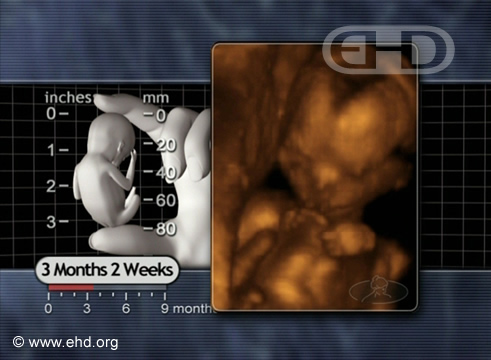Because human life starts well before birth, it is no surprise that human learning starts well before birth. Science is showing us that the 9 months spent inside our mother’s womb is a time we take cues from our mother and her environment. Some of these cues will stay with us for our entire lives.
In this fascinating TED video, Annie Murphy Paul explains:
So if food is abundant in the womb then we fine tune our metabolism for a life of abundance. If food is scarce, we prepare for a life of famine. If life for mom is stressful, then we develop a sensitivity to stress preparing for a stress filled life. Culture is not something that we learn only outside the womb, but inside as well. From the melodies of language to the spices in our mother’s food, the place we are gestated matters.
 Which makes me wonder about the confusion of a baby who was carried not by its own mother, but by a surrogate. The baby will certainly prefer the surrogate’s voice no matter how much her genetic mother spoke to her from the outside. And that voice will suddenly disappear.
Which makes me wonder about the confusion of a baby who was carried not by its own mother, but by a surrogate. The baby will certainly prefer the surrogate’s voice no matter how much her genetic mother spoke to her from the outside. And that voice will suddenly disappear.
And what about children who are frozen as embryos and shipped overseas to be carried by a woman half a world away with a strange language and a totally different diet? How much stress and confusion do they feel after birth when suddenly the culture they knew is no longer there.
For babies who are adopted this is the norm of course. But adoption is making the best of a situation that is not ideal. With surrogacy, parents choose to put their child in what must be a very confusing situation.
I always come back to this passage from the Catechism of the Catholic Church because the more we learn about what goes on in the womb and procreation in general the more it makes sense. This passage is so often maligned but it makes clear that the Church supports the right of a child to be conceived by, gestated by, and born to his or her genetic parents:
2376 Techniques that entail the dissociation of husband and wife, by the intrusion of a person other than the couple (donation of sperm or ovum, surrogate uterus), are gravely immoral. These techniques (heterologous artificial insemination and fertilization) infringe the child’s right to be born of a father and mother known to him and bound to each other by marriage. They betray the spouses’ “right to become a father and a mother only through each other.”
LifeNews.com Note: Rebecca Taylor is a clinical laboratory specialist in molecular biology, and a practicing pro-life Catholic who writes at the bioethics blog Mary Meets Dolly. She has been writing and speaking about Catholicism and biotechnology for five years and has been interviewed on EWTN radio on topics from stem cell research and cloning to voting pro-life. Taylor has a B.S. in Biochemistry from University of San Francisco with a national certification in clinical Molecular Biology MB (ASCP).







